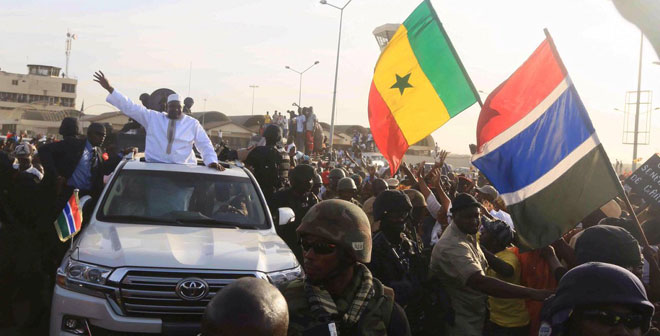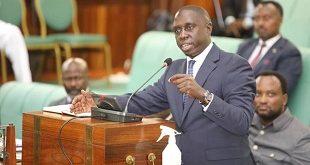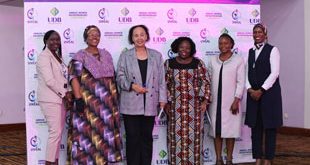
Banjul, Gambia | AFP | Polls closed on Thursday evening in The Gambia with voters expected to usher in a new generation of lawmakers to scrutinise a raft of reforms promised by President Adama Barrow, in the first election since longtime leader Yahya Jammeh left power.
Turnout was low when polling stations across the tiny west African nation closed at 5:00pm (1700 GMT), the vice-chairman of the Independent Electoral Commission (IEC) said, though hopes remain high for a revitalised parliament after years of rubberstamping Jammeh’s executive orders.
More than 880,000 Gambians were eligible to vote for the body’s 53 elected seats, with five more appointed by the president, and many relished the chance to express their opinion after 22 years of iron-fisted rule.
“The only way Gambians can consolidate our newfound democracy is for people to ensure they elect competent individuals that will represent them in parliament and help in making the government’s reform agenda a reality,” said Fatou Suwareh, who was waiting in line to vote on the outskirts of Banjul.
Manneh Sallah, vice-chairman of the electoral commission, speaking to AFP by phone after the polls closed, said “turnout is still going to be very low,” adding that although National Assembly elections generally have a poorer turnout he had been surprised by the scarcity of voters.
Thursday’s election is a key test for several former opposition parties that united to form a coalition to oust Jammeh from power and deliver flag bearer Adama Barrow to victory as the new president.
Internal tensions mean those parties are not running together in the legislative elections, and Barrow’s promised overhaul of every aspect of the Gambian state will depend on their willingness to cooperate in parliament and in cabinet.
Posing a threat is the Gambia Democratic Congress (GDC), a youth-led party which did not join the governing coalition and whose leader Mama Kandeh came third in last year’s presidential vote.
– Barrow defends cabinet –
Some voters expressed anger that the coalition parties had not been able to present a united front.
“The coalition was my party but when things started falling apart with them, everyone has to go to their own party,” said Yaisa Jawara, who chose the GDC as a protest vote, at a roadside polling station near the capital Banjul.
Barrow attempted to shrug off accusations that his coalition was permanently damaged by infighting which at times has broken out into the open in Gambian media, saying after voting that there was “no split”.
Barrow was formerly a member of the United Democratic Party (UDP), a movement which has waited many years for the chance to take office.
The UDP’s activists were routinely imprisoned and abused by Jammeh’s security forces, and its leader Ousainou Darboe is seen in some quarters as a divisive figure with decades of political baggage in a country looking for a fresh start.
Ousman Addo a Gambian electoral observer for Anti-Corruption International, said allies of Jammeh’s Alliance for Patriotic Reorientation and Construction (APRC) were “staying away because they feel they have already los,”.
Meanwhile undecided voters “don’t know who to vote for, they have had a short time to get to know these parties,” he added, blaming a lack of civic education under Jammeh where the APRC party was promoted above all others.
– Roll of the marble –
There is no formal opinion polling in The Gambia, making it difficult to establish voting intentions, but the APRC was only able to muster candidates in just over half the country’s constituencies, meaning they cannot obtain the near-total majority achieved in past elections.
Despite this, Fabakary Tombong Jatta, the new leader of the APRC, said he was confident of their chances with Barrow apparently stumbling.
“Government came with a slogan ‘Gambia has decided’ but assessing their hundred days in office, it is full of failures in all domains,” he said.
The African Union, the regional bloc ECOWAS and the European Union all sent observers to monitor the votes cast under The Gambia’s unique system, where marbles are dropped into coloured metal barrels representing different candidates.
The marbles are then sifted into trays to be counted, though several observers and Gambian politicians told AFP this could be the last election to make use of the system, which is expensive to maintain.
West African troops remained on the ground to assure security three months after Jammeh’s departure, and will stay until Barrow is satisfied that reforms of the security service have removed rogue elements.
 The Independent Uganda: You get the Truth we Pay the Price
The Independent Uganda: You get the Truth we Pay the Price


